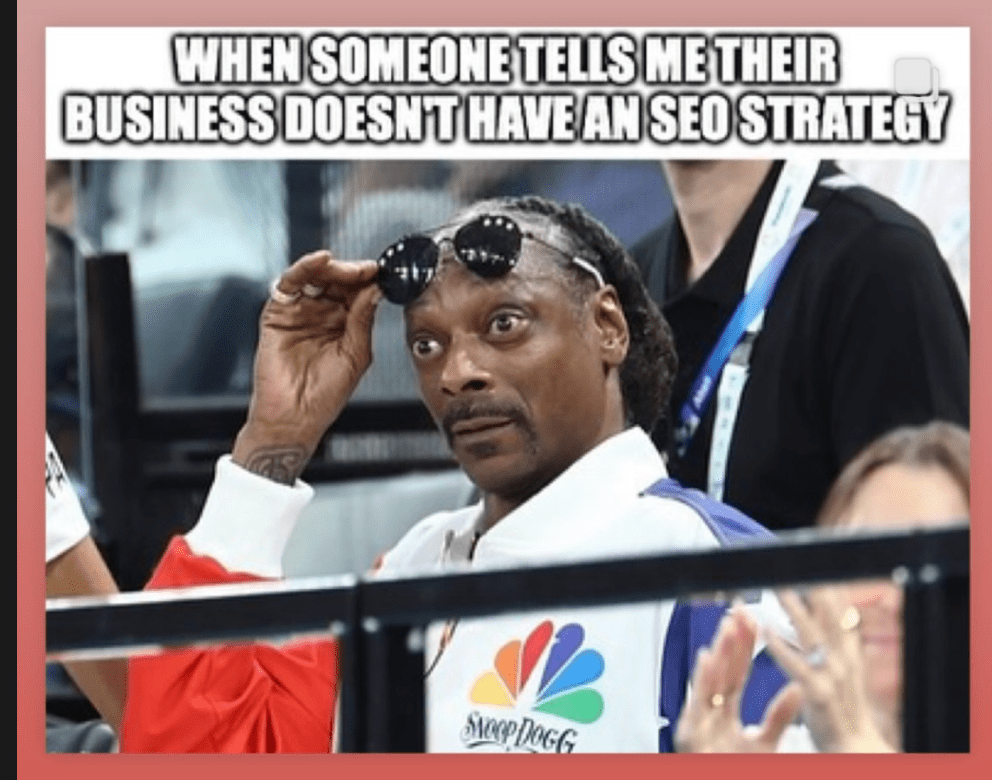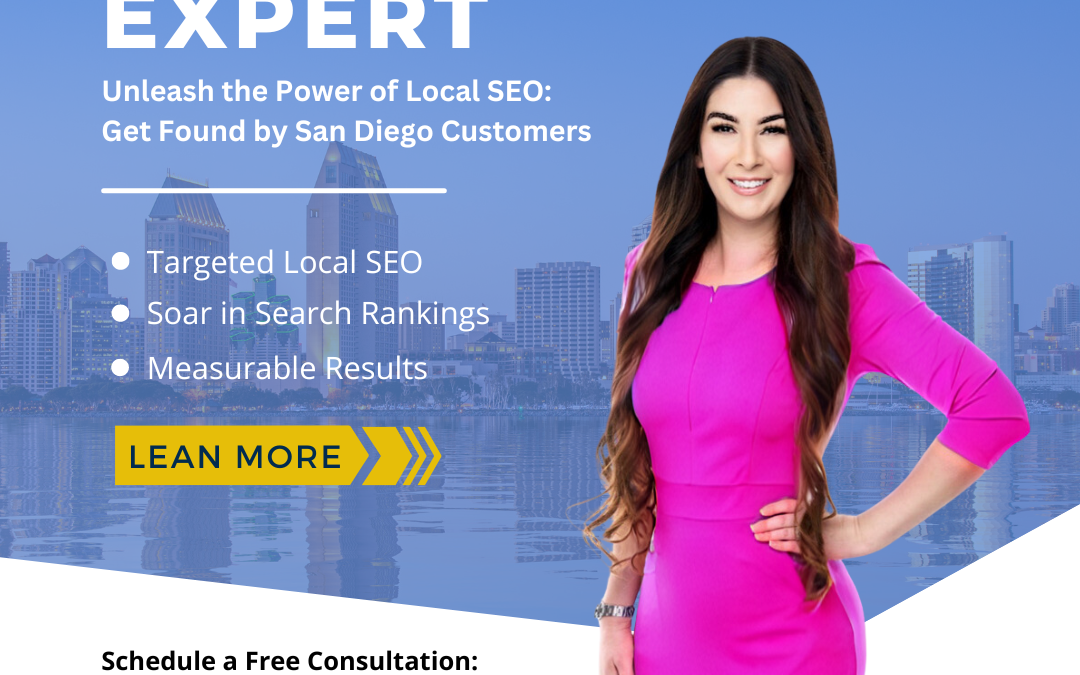
Aug 16, 2024 | SEO Tips

Hey there! Jen Ruhman here, from Jen Ruhman SEO in sunny San Diego!
You know how frustrating it can be to spend ages crafting the perfect blog post, only to see its traffic dwindle over time? The online world moves fast, and search engines favor fresh, relevant content. That’s where content refreshing comes in – it’s like giving your old content a makeover to keep it ranking high and attracting readers.
Think of it like this: remember that epic history project you did in high school? You spent hours researching, writing, and creating that presentation, but a year later, some of the information might be outdated. Updating it with new discoveries or a fresh perspective would make it more interesting and relevant, right? Content refreshing is the same for your website.
Why Bother Refreshing Old Content?
Search engines are like complex detectives, constantly crawling websites and analyzing content. They want to show users the most up-to-date and valuable information. If your content is gathering dust, those search engines might move it down in the rankings, making it harder for people to find. Here’s why refreshing your content can be a game-changer:
Boost Your Rankings:
Imagine your content climbing the Google ladder! Refreshing it with new keywords and information tells search engines your website is active and delivers value. This can lead to higher rankings and more organic traffic – free visitors who land on your site because they found your content relevant to their searches.
Happy Readers, Happy You:
Outdated content can be like showing up to a party in last year’s clothes. Readers get a bad impression and leave quickly. By keeping your content current, you provide a better user experience. This means longer visits, more shares, and potentially even more sales or conversions if that’s your goal.
Build Authority and Trust:
We all trust a friend who stays informed, right? The same goes for websites. Regularly updating content shows you’re committed to providing accurate and valuable information. This strengthens your authority in your industry and builds trust with your audience, making them come back for more.
Get More Social Buzz:
Ever shared a cool article with your friends, only to realize it’s from 2010? Not so cool anymore. When you refresh content with fresh insights and data, it becomes more shareable. This can lead to more social media buzz and backlinks (links from other websites that point to yours), which are like gold stars in the eyes of search engines.
Save Time and Money:
Creating brand new content takes time and resources. Refreshing old content allows you to leverage what you already have, making it a cost-effective way to improve your SEO. Think of it as upcycling – taking something old and turning it into something fantastic!
Okay, You’re Sold on Refreshing. Now What?
Here’s where the fun part starts! It’s all about strategically optimizing your existing content for maximum impact.
Find the Diamonds in the Rough:
Not all content needs refreshing. Use website analytics tools to pinpoint content that’s already ranking well but could be even better with an update. Focus on pages close to the first page of search results – a refresh can push them to the top!
Keyword Magic:
Remember those keywords you researched when you first created the content? Do a quick keyword refresh to make sure you’re targeting the latest and most relevant search terms. Update your meta tags, titles, and descriptions with these new keywords to boost click-through rates – the number of people who click on your content after seeing it in search results.
New Insights, New Audience:
Think of your content as a conversation. Has anything changed in your industry since you first wrote it? Are there new statistics, case studies, or examples you can add to make it more valuable? Adding fresh perspectives keeps your audience engaged and shows you’re staying ahead of the curve.
Readability Matters:
Remember that teacher who always stressed the importance of clear writing? They were onto something! Break up long blocks of text with headers, bullet points, and images to make your content easier to read and navigate. Use internal and external links to keep users engaged and encourage them to explore more of your website.
Spread the Word!:
You’ve refreshed your content, it’s looking amazing, now it’s time to shout it from the rooftops (well, maybe social media is a better option). Share your updated content on social media platforms, include it in your email newsletters, and reach out to influencers or websites that might find it valuable. The more people who see your content, the better!
Content Refreshing: It’s an Ongoing Journey
Content refreshing isn’t a one-time fix, it’s an ongoing journey. Just like you wouldn’t wear the same outfit every day, your website’s content needs regular updates to stay fresh and relevant.
Think of it like spring cleaning for your website. You dust off the old content, declutter, and bring in some new and shiny things to make it sparkle. By consistently refreshing your content, you’re telling search engines and your audience that you’re committed to providing the best possible information.
Creating a Refreshing Routine
To make content refreshing a habit, consider setting up a content audit schedule. Maybe it’s a quarterly review, or perhaps a monthly deep dive into your top-performing pages. This routine helps you stay on top of changes in your industry and ensures your content remains valuable.
Remember, content refreshing is an investment in your website’s future. It might seem like a lot of work upfront, but the long-term benefits in terms of improved rankings, increased traffic, and enhanced user experience are well worth it.
Need more tips or want to dive deeper into a specific aspect of content refreshing? Feel free to ask! I’m here to help you create a content refresh strategy that works for your business.
Would you like to explore specific content refresh strategies or discuss how to create a content audit schedule?
Unlock the full potential of your online presence and transform your website visitors into loyal clients! Schedule a free consultation today by calling or texting us at (619) 719-1315. Let’s discuss how my San Diego SEO company can turn your website into a powerful lead-generation machine.
Together, we can elevate your med spa from a hidden gem to a sought-after destination for clients eager for the latest advancements in aesthetics!

Aug 14, 2024 | SEO Tips

Why Local SEO Makes You the Star of San Diego’s Search Scene
Hey there, San Diego business owners! This is Jen Ruhman from Jen Ruhman SEO, a local SEO company in San Diego. We all know San Diego’s a bustling hub – from world-class beaches to booming tech startups, there’s something for everyone. But with so much competition, how do you make sure potential customers find YOU? That’s where local SEO comes in, and trust me, it’s the secret weapon you need to become the local hero everyone’s searching for.
Understanding San Diego’s Unique Market
San Diego isn’t just a pretty face (although, let’s be honest, the beaches are amazing). It’s a city with a diverse mix of industries. We’ve got tourism giants, healthcare powerhouses, and a thriving tech scene. This means a one-size-fits-all SEO strategy just won’t cut it. Local SEO lets you tailor your online presence to resonate with the specific needs and search habits of San Diego residents. Think of it as speaking the local language online!
The Power of Local SEO: Why It Matters Here
Imagine someone searching for “best pizza near me” on their phone. Local SEO is like magic dust that makes your pizzeria the first thing they see! Here’s why it’s a game-changer for San Diego businesses:
- Increased Visibility: Local SEO helps your business appear in local search results, Google Maps, and local directories. It’s like putting up a neon sign that screams “We’re open and awesome!”
- More Customers Through the Door: Local searches often come from people who are ready to buy, not just browse online. Local SEO helps you connect with these high-intent customers who are actively searching for businesses like yours.
- Cost-Effective Marketing: Local SEO is a budget-friendly way to reach your target audience compared to traditional advertising. Think of it as getting a bigger bang for your buck!
- The Competitive Edge: Local SEO helps you stand out from the crowd. While your competitors might be missing out, you can be the shining star San Diego customers see first.
How Local SEO Impacts Your Search Ranking
Think of search engines like Google as matchmakers for businesses and customers. Local SEO helps you climb the ranks and get matched with the right people in San Diego. Here’s how:
- Optimizing Your Google My Business Profile: This is your golden ticket to local SEO success. It’s like your online storefront, so make sure it’s filled with accurate information, high-quality photos, and glowing reviews (which are like gold in the local SEO world).
- Local Keywords Matter: We’ll help you identify the keywords San Diego residents are using to find businesses like yours. Think of them as search magnets that draw potential customers to your website. For instance, if you run a yoga studio in La Jolla, national SEO might focus on “best yoga poses,” but local SEO lets you target searches like “La Jolla yoga classes for beginners.” This way, you’re attracting people who are ready to walk through your door, not just browsing yoga poses online.
Building Your Local SEO Strategy: Key Elements for Success
Think of your local SEO strategy as a recipe for online success in San Diego. Here are the key ingredients:
- Optimizing Your Google My Business Profile: We mentioned it before, but it’s that important! Fill out all the details accurately, add high-quality photos, and encourage customers to leave reviews. Respond to reviews promptly, both positive and negative, to show you care about customer feedback.
- On-Page SEO: This involves optimizing your website content with your target keywords and making sure it’s user-friendly. Imagine your website as a welcoming space where customers can easily find the information they need about your business.
- Building Local Citations: These are mentions of your business name, address, and phone number (NAP) across online directories and websites. Think of them as digital breadcrumbs that help search engines understand your location and connect you with local searches.
- Getting Positive Customer Reviews: Positive reviews are like online word-of-mouth. They can make or break your business. We’ll help you create a system to encourage customers to leave reviews and respond to them promptly.
- Mobile Optimization: With more and more people using smartphones, having a mobile-friendly website is non-negotiable. Imagine someone searching for your business on the go – you want your website to load quickly and be easy to navigate on a phone.
Real-Life Examples: Local Businesses Winning with SEO
We’ve seen the magic of local SEO firsthand. For instance, we helped a local bakery in Point Loma skyrocket their online presence after optimizing their Google My Business profile and targeting local keywords like “gluten-free cupcakes near
me and the team helped a local bakery in Point Loma skyrocket their online presence after optimizing their Google My Business profile and targeting local keywords like “gluten-free cupcakes near me.” The result? More foot traffic, happy customers, and a thriving bakery business.
Overcoming Local SEO Challenges: It’s Not Always a Piece of Cake
While local SEO is powerful, it’s not always a walk in the park. Here are some common challenges and how we tackle them:
- Inconsistent Information: Imagine trying to find a friend who keeps changing their address! That’s what happens when your business information is inconsistent across different online platforms. We make sure your business name, address, and phone number (NAP) are identical everywhere to avoid confusing search engines and potential customers.
- Staying on Top of Reviews: Managing your online reputation is like being a popular kid in school – everyone’s watching. We help you encourage positive reviews, respond to both good and bad feedback, and address any issues promptly.
- Keeping Up with the Joneses: The world of SEO is always changing, like fashion trends. We stay ahead of the curve by constantly learning and adapting to new algorithms and search engine updates.
Content is King (and Queen) in Local SEO
Creating content that resonates with your local audience is like having a conversation with your neighbors. Here’s how we do it:
- Local Blog Posts: We write blog posts about local events, news, and happenings. This helps you connect with the community and show you’re a local insider.
- Highlighting Your Community Involvement: We showcase your involvement in local charities, sponsorships, or partnerships. This builds goodwill and establishes you as a good neighbor.
- Using Local Keywords: We sprinkle local keywords like “San Diego,” “Point Loma,” or “La Jolla” throughout your content to help search engines understand your location.
Building Local Connections: The Power of Backlinks
Backlinks are like recommendations from your friends. They tell search engines that your business is trustworthy and relevant. Here’s how we build them:
- Partnering with Local Businesses: We collaborate with other local businesses for mutual promotion and link exchanges.
- Community Involvement: Sponsoring local events, donating to charities, or participating in community initiatives can earn you valuable backlinks.
- Local Directories: We ensure your business is listed in relevant local directories to build authority and credibility.
The Future of Local SEO: Stay Ahead of the Game
Just like technology, local SEO is constantly evolving. Here’s what we’re keeping an eye on:
- Voice Search: As more people use voice assistants, we’re optimizing for conversational search queries.
- Artificial Intelligence: AI is changing the way search engines work. We’re staying ahead of the curve to ensure your business remains visible.
- Mobile Dominance: With more people using smartphones, we’re focusing on mobile-friendly websites and local mobile search optimization.
Common Local SEO Mistakes to Avoid
Don’t let these common mistakes trip you up:
- Ignoring Google My Business: This is the foundation of your local SEO strategy, so don’t neglect it.
- Inconsistent NAP Information: Make sure your business name, address, and phone number are identical everywhere.
- Neglecting Mobile Optimization: A mobile-unfriendly website will drive away potential customers.
- Overlooking Local Reviews: Encourage customers to leave reviews and respond to them promptly.
Ready to Become a Local SEO Rockstar?
By implementing these strategies and avoiding common pitfalls, you’ll be well on your way to becoming the local hero your customers are searching for. Remember, local SEO is an ongoing journey, so stay consistent and adapt to changes in the search landscape.
Want to take your local SEO to the next level? Let’s chat! I offer free consultations to help you create a customized strategy for your San Diego business. Give me a call or text at (619) 719-1315.
Remember, San Diego is a city full of opportunities. Let’s make sure your business shines bright in the local search spotlight!

Aug 14, 2024 | SEO Tips

Hey there! I’m Jen Ruhman, and I run an SEO agency in San Diego. Imagine walking into a giant mall with thousands of stores – that’s kind of what the internet is like for businesses. You need a way to stand out and get people to walk through your door, right? That’s where SEO comes in.
In today’s digital jungle, where countless online businesses are vying for attention, having a strong online presence is no longer a luxury – it’s a necessity. But simply having a website isn’t enough. To truly thrive and capture your target audience, you need a well-crafted SEO strategy.
Think of SEO as your business’s personal search engine guide. It’s the roadmap that helps potential customers find you amidst the digital chaos. Without it, your business risks becoming a lost island in a vast ocean of competitors.
The Power of SEO in the Digital World
So, what exactly is SEO? It stands for Search Engine Optimization. Basically, it’s the magic that helps your website show up higher in search results when people type in things related to your business. Remember that time you were researching the best pizza place for your school fundraiser? You probably scrolled through the first page of Google results, right? That’s prime real estate, and SEO helps you grab a spot there.
But SEO is more than just winning the popularity contest on Google. It’s about building a strong online presence that works for you in the long run. Let’s dive deeper into the benefits:
More Visitors, More Business (Without Breaking the Bank!)
Imagine this: you spend all day setting up a lemonade stand with the perfect recipe, but no one walks by. That’s what having a website without SEO can be like. Organic traffic, which means people finding your site naturally through search engines, is the lifeblood of most online businesses. With SEO, you’re not paying for clicks – you’re attracting customers who are actively looking for what you offer.
Here’s a personal story: I once worked with a local bakery that was struggling to get customers. They had a beautiful website with mouthwatering pictures of their cakes, but no one knew it existed. After implementing an SEO strategy, they started ranking higher for searches like “best birthday cakes San Diego.” Within a few months, they were swamped with orders!

What is SEO?
SEO, or Search Engine Optimization, is the art and science of improving your website’s ranking on search engine results pages (SERPs). When people search for products or services related to your business, you want your website to be one of the first they see.
Why does it matter?
- Increased Organic Traffic: SEO is your ticket to free, high-quality traffic. When you rank higher in search results, more people will discover your business without you having to pay a dime for clicks.
- Enhanced Brand Visibility: A strong SEO strategy positions your business as an authority in your industry. Consistent visibility on the first page of search results builds trust and credibility.
- Competitive Advantage: Your competitors are likely using SEO. To stay ahead of the game, you need to optimize your website to outrank them.
- Improved User Experience: SEO isn’t just about pleasing search engines; it’s about creating a fantastic user experience. By optimizing your website for search engines, you’re also making it easier for visitors to find what they’re looking for.
- Higher Conversion Rates: When people find your website through relevant search results, they’re more likely to become customers. SEO helps convert visitors into buyers.
The SEO Process: A Simplified Breakdown
While SEO can seem complex, the core principles are relatively straightforward:
- Keyword Research: Identify the words and phrases your target audience is searching for.
- On-Page Optimization: Optimize your website’s content and structure to match those keywords.
- Technical SEO: Ensure your website is technically sound and easy for search engines to crawl and index.
- Link Building: Acquire high-quality backlinks to boost your website’s authority.
- Local SEO (if applicable): Optimize your website for local search results to attract customers in your area.
The Long-Term Benefits of SEO
SEO is an investment in your business’s future. While it might take time to see significant results, the long-term benefits are substantial:
- Sustainable Growth: Organic traffic is a steady stream of potential customers.
- Higher ROI: Compared to paid advertising, SEO offers a better return on investment over time.
- Data-Driven Insights: SEO provides valuable data about your audience, helping you make informed business decisions.
- Improved Brand Reputation: Consistent visibility and high rankings enhance your brand’s reputation.
Building Trust and Becoming the Go-To Expert
Think about it: when you need information, where do you go? Google, probably! People trust search engines, and when your website consistently shows up for relevant searches, it sends a powerful message – you’re a credible and reliable business. SEO goes beyond keywords, though. It helps make your website user-friendly, with features like fast loading times and clear navigation. This positive user experience further reinforces your brand’s trustworthiness.
Keeping Up with the Joneses (and Beating Them!)
No matter what you sell, chances are there are other businesses out there offering similar products or services. In this competitive online landscape, SEO gives you a fighting chance. By ranking higher than your competitors, you attract their potential customers and establish yourself as a leader in your industry. Remember that time you aced that science project presentation because you researched more than anyone else? SEO is like that research advantage for your business!
SEO: Your Budget-Friendly Marketing BFF
Let’s face it, budgets can be tight, especially when you’re just starting out. The beauty of SEO is that it’s one of the most cost-effective marketing strategies available. While there might be an initial investment in time and resources to optimize your website, the long-term benefits far outweigh the costs. Think of it like planting a seed – you put in some work upfront, but you reap the rewards for a long time.
Here’s the best part: unlike paid advertising that stops working when you stop paying, a strong SEO strategy keeps driving traffic for months and even years to come.
Happy Users, Happy Business
SEO isn’t just about pleasing search engines – it’s about creating a fantastic experience for your website visitors. Search engines like Google favor websites that are user-friendly, with features like fast loading times, clear navigation, and high-quality content. By focusing on these aspects, you’re not only ticking the SEO boxes but also ensuring that visitors have a smooth and enjoyable experience on your site, increasing the chances of them becoming customers. Think of it like keeping your lemonade stand clean and organized – it makes people want to buy your delicious drinks, right?
Future-Proofing Your Business for Success
The internet is constantly evolving, and SEO helps your business stay ahead of the curve. Search engine algorithms are updated regularly to improve search results, which means SEO strategies need to adapt as well. By staying informed about the latest trends and adjusting your approach accordingly, your business can remain competitive for years to come.
Unlocking Your Business’s Potential with Data and Insights
Data is Your Secret Weapon
One of the coolest things about SEO is the treasure trove of data it provides. Tools like Google Analytics give you a behind-the-scenes look at how people are interacting with your website. You can see which pages are the most popular, what keywords people are using to find you, and even where your visitors are coming from.
Imagine running a lemonade stand and being able to see which flavor is the most popular or what time of day people are most thirsty. That’s the kind of information you can get with SEO data!
Making Data-Driven Decisions
So, what do you do with all this data? You use it to make smart decisions about your business! Let’s say your analytics show that a lot of people are searching for “sugar-free lemonade.” You can then create a special sugar-free recipe and promote it on your website. Or maybe you notice that most of your customers are coming from a specific neighborhood. You could consider setting up a pop-up stand there!
SEO data helps you understand your customers better, so you can tailor your products or services to their needs. It’s like having a crystal ball for your business!
SEO: It’s a Marathon, Not a Sprint
I know, I know, you’re probably eager to see results right away. But SEO is a long-term game. It takes time for your website to climb the search engine rankings. That’s why it’s important to be patient and consistent with your efforts.
Think of it like training for a marathon. You don’t just wake up one day and run 26 miles. You start with short distances and gradually build up your endurance. The same goes for SEO. You’ll see small improvements over time, but the payoff is huge in the end.
Stay Ahead of the Curve
The digital world is always changing, and so are search engines. That’s why it’s crucial to stay up-to-date on the latest SEO trends. New algorithms, updates, and best practices are constantly emerging.
It’s like learning a new language – you have to keep practicing to stay fluent. By staying informed and adapting your SEO strategy, you can ensure that your business stays ahead of the competition.
Wrapping It Up
In the competitive world of online business, SEO is your secret weapon for success. By prioritizing SEO, you’re not just optimizing your website; you’re investing in the growth and sustainability of your business.
Remember, SEO is an ongoing process. Stay informed about the latest trends, adapt your strategy as needed, and measure your results. With dedication and the right approach, you can unlock the full potential of your online business.
Need help getting started? Feel free to reach out to me at Jen Ruhman SEO. I’m here to help you unlock your business’s full potential.
Would you like to learn more about specific SEO techniques or how to create an SEO strategy for your business?

Aug 12, 2024 | SEO Tips

Understanding Google’s E-A-T Guidelines and Their Impact on SEO:
Your Guide to Building a Trustworthy Website
Hey everyone, Jen Ruhman here, owner of Jen Ruhman SEO in sunny San Diego! Today, I want to talk about something that’s become a hot topic in the SEO world: Google’s E-A-T guidelines.
Let’s face it, ranking well on Google can feel like a mystery sometimes. You write great content, you optimize your website, but those top spots on the search results page still seem out of reach. Well, E-A-T might be the missing piece of the puzzle.
What is E-A-T?
E-A-T stands for Expertise, Authoritativeness, and Trustworthiness. It’s a framework that Google uses to assess the quality and credibility of websites. In simpler terms, Google wants to show users search results that come from reliable sources, written by people who actually know what they’re talking about.
Think about it this way. If you’re searching for information on how to fix a leaky faucet, wouldn’t you feel more confident following instructions from a licensed plumber rather than a random blog post? That’s exactly what Google wants: to connect users with the best possible information.
Why Should You Care About E-A-T?
Here’s the deal: E-A-T matters for every website, not just those in super serious fields like medicine or finance. Whether you’re running a baking blog or a dog walking service website, building trust and authority with Google is key to ranking higher and attracting more visitors.
Industries That Need More Time to Earn Google’s Trust
I see it all the time with my clients. They put a lot of effort into traditional SEO tactics like keyword stuffing, but their content just doesn’t cut it. It lacks depth, originality, or simply isn’t trustworthy. Google can sniff that out a mile away, and your website gets buried in the search results.
Breaking Down E-A-T:
Now, let’s dive deeper into each element of E-A-T and see how you can implement it on your website:
1. Expertise
This means showing Google that you’re a true expert in your field.
- Content Depth: Go beyond surface-level information. Dive deep into your topic, providing valuable insights and unique perspectives.
- Case Studies & Research: Have you conducted your own research or have real-world experience? Showcase it! This adds credibility and positions you as an authority.
- Author Credentials: Are you a certified dog walker? A baker with years of experience? Highlight your qualifications and expertise on your website. Even for more casual topics, showcasing your passion and knowledge goes a long way.
Remember: Expertise isn’t just about fancy degrees or certifications. It’s about genuine knowledge and a passion for your subject.
For example, I might not have a Ph.D. in SEO, but I’ve been working in this field for over 10 years. I’ve helped countless businesses improve their online presence, and I’m constantly learning and staying up-to-date on the latest trends. That’s the kind of expertise that Google recognizes.
2. Authoritativeness
Think of authoritativeness as your website’s reputation. Here’s how to build it up:
- High-Quality Backlinks: Getting other reputable websites to link back to yours is a major trust signal for Google. It shows that others recognize your expertise and value your content.
- Guest Posting: Contribute guest articles to other well-respected websites in your niche. This not only builds backlinks but also expands your reach and establishes you as an authority.
- Industry Recognition: Have you been featured in any publications or won any awards? Showcase them! This further strengthens your authoritativeness.
3. Trustworthiness
This is all about building user trust and making your website a safe and reliable space.
- Accurate & Up-to-Date Content: Double-check your facts! Ensure your information is accurate, current, and reflects the latest best practices.
- Transparency: Be upfront about who you are and what you do. Clearly display your contact information and have a well-defined privacy policy.
- Website Security: Make sure your website uses HTTPS encryption. This shows users that their data is secure and builds trust.
E-A-T for Different Industries:
While E-A-T is crucial for all websites, it holds even greater weight in certain industries:
- Health & Wellness: When it comes to medical advice, Google prioritizes content from qualified professionals and backed by scientific evidence.
- Finance: Similar story here. Financial advice can have major consequences, so Google wants to make sure you’re qualified to give it.
- News & Information: In a world filled with fake news, Google relies on E-A-T to separate the real from the fake. Trustworthy journalism, fact-checking, and transparent sourcing are essential.
Measuring Your E-A-T Success:
So, how do you know if your E-A-T efforts are paying off?
- Track Your Rankings: Are you climbing the search engine results pages? That’s a good sign!
- Check Your Traffic: Are more people visiting your website? Are they staying longer and engaging with your content?
- Monitor Backlinks: Are you building high-quality backlinks from reputable websites?
- User Feedback: What are your users saying about your website? Are they finding your content helpful and informative?
Remember, E-A-T is an ongoing process. It’s not something you can just fix and forget about. You need to consistently create high-quality content, build relationships, and maintain a trustworthy website.
Common E-A-T Mistakes:
I see a lot of websites making these E-A-T mistakes:
- Ignoring Content Quality: Focusing too much on keyword stuffing and not enough on creating valuable content.
- Neglecting Website Security: A website without HTTPS is a major red flag for users and Google.
- Underestimating Author Credentials: People want to know who’s behind the content. Highlight your expertise and qualifications.
Building a strong E-A-T foundation is essential for long-term SEO success. By focusing on expertise, authoritativeness, and trustworthiness, you’ll not only improve your search rankings but also build a loyal audience that trusts your brand.
FAQs:
- Is E-A-T relevant for all types of websites? While E-A-T is particularly important for websites in the health, finance, and news industries, it’s relevant for all types of websites. Any site that wants to rank well on Google should prioritize E-A-T.
- How often should I update my content to maintain E-A-T? Regularly updating your content is crucial for maintaining E-A-T. This ensures that your information remains accurate, relevant, and trustworthy.
I hope this guide has been helpful! Remember, building a strong online presence takes time and effort. But by focusing on E-A-T, you’ll be well on your way to achieving your SEO goals.
Would you like to dive deeper into a specific aspect of E-A-T, or do you have any other questions?
Ready to boost your website’s visibility and attract more customers? Let’s put your E-A-T strategy into action! As a top SEO company in San Diego, contact Jen Ruhman SEO today for a free consultation and discover how we can help you dominate the search engine rankings.
Visit https://jenruhman.com/ or call/text me at (619) 719-1315 to get started.

Aug 12, 2024 | SEO Tips

SEO Strategies for Building Trust and Ranking Higher: A San Diego SEO’s Perspective
Hey there! I’m Jen Ruhman, owner of Jen Ruhman SEO, a digital marketing agency here in sunny San Diego. We help businesses of all shapes and sizes climb the Google rankings and get noticed online.
Today, I want to talk about building trust with Google and ranking higher in search results. It’s a bit like building a strong friendship – it takes time, effort, and a genuine connection. Now, some industries have a tougher time making those friends (read: Google) than others. Let’s dive into why and what you can do about it!
Industries That Need More Time to Earn Google’s Trust
Here’s the thing: Google prioritizes websites that users can trust. They want to show searchers the most reliable and helpful information available. This means certain industries naturally face more hurdles when it comes to ranking high. Here are a few examples:
1. Financial Services:
Picture this: You’re searching for a new investment strategy. Are you going to trust a random website or a well-established bank? Exactly! The financial services industry is full of big names and strict regulations. This means it takes extra effort for newer players to stand out.
My Tip: Focus on creating high-quality content like educational blog posts and in-depth guides. Show your expertise! Building trust with potential clients also means prioritizing security. Make sure your website is encrypted and uses secure payment gateways. Think of it as putting a padlock on your online office!
2. Healthcare:
When it comes to your health, you want the best information, right? That’s why Google holds healthcare websites to a high standard. Medical topics are complex, so your content needs to be accurate and come from a trusted source (like a doctor!).
My Tip: Partner with qualified healthcare professionals to create your content. This shows Google you’re serious about providing reliable information. Also, patient privacy is paramount. Make sure your website is HIPAA compliant and clearly explains how you handle user data.
3. Legal Services:
The legal field is crowded, with countless lawyers vying for attention. Building a strong reputation takes time, and Google knows that.
My Tip: Local SEO is key for lawyers! Focus on optimizing your website for your specific area. Think about the search terms potential clients might use to find you. Testimonials and positive reviews from satisfied clients also go a long way in building trust with Google and potential customers.
4. E-commerce (High-Ticket Items):
Imagine spending thousands of dollars online on a new watch or piece of furniture. You’d want to be super confident about the seller, right? That’s why Google prioritizes established e-commerce stores for high-value items.
My Tip: Customer reviews are your best friend! Encourage satisfied buyers to leave positive feedback on your website and other platforms. High-quality product photos and detailed descriptions can also build trust with potential buyers.
5. Adult Industries:
Let’s be honest, the adult industry faces unique challenges online. Google has strict policies on adult content, making it difficult to rank highly in search results. Additionally, building trust with both search engines and users can be tough.
My Tip: While I can’t offer specific SEO advice for this industry due to Google’s guidelines, focusing on creating high-quality, informative content that caters to a specific niche within the adult industry could be a potential approach. It’s important to always comply with Google’s content policies.
Building Trust and Ranking Higher: It’s a Marathon, Not a Sprint
Remember, even for industries outside this list, building trust and ranking higher takes consistent effort. Here are some key factors to focus on:
- High-Quality Content: This is the golden rule of SEO. Create informative, engaging content that solves your target audience’s problems.
- Website Authority: Think of it as your online reputation. Over time, you build authority through backlinks (mentions of your website on other reputable sites) and positive reviews.
- User Experience: Make your website user-friendly! Fast loading speeds, clear navigation, and a mobile-friendly design are all crucial.
- Local SEO (if applicable): For businesses with a brick-and-mortar location, optimizing your website for local search is essential.
Need Help Climbing the Google Ladder?
Building trust and ranking higher takes time and dedication. But with the right strategies, any business can succeed in the digital world. Here at Jen Ruhman SEO, we help businesses in San Diego and beyond achieve their SEO goals.
Free SEO Consultation: Let’s Get Your Business Found!
So, you’ve read about the challenges some industries face in the world of SEO, right? Well, as a trusted SEO company in San Diego, I’m here to tell you that even though it might seem like an uphill battle, with the right strategy, your business can absolutely dominate the search results.
I offer free SEO consultations to help you understand your unique situation and develop a plan to reach your goals.
During our chat, we’ll dive into your business, your target audience, and your competition. I’ll share insights into the latest SEO trends and best practices. And most importantly, I’ll provide actionable steps you can take to improve your website’s visibility.
Think of me as your personal SEO cheerleader! I’m passionate about helping businesses succeed online, and I’m excited to see how I can help you reach new heights.
Ready to take the next step? Visit my website, https://jenruhman.com/, to schedule your free consultation today!
Remember, building a strong online presence is like building a house. It takes time, effort, and a solid foundation. But with the right tools and guidance, you can create a digital home that attracts visitors and turns them into loyal customers.
Let’s work together to make your business a search engine superstar!
Would you like to learn more about specific SEO strategies or discuss a particular challenge you’re facing?

Jul 18, 2024 | SEO Tips
Hey San Diego Businesses, It’s Jen Ruhman Here!

Are you tired of feeling invisible online? Your website has so much potential, but if it’s buried on page ten of Google, it’s not doing much for your bottom line. That’s where I come in!
I’m Jen, San Diego’s go-to gal for all things local SEO. I’ve spent over a decade helping countless businesses just like yours dominate local search and watch their customer base explode.
Imagine this: Your website is buzzing with activity. Qualified leads are filling out contact forms, your phone’s ringing off the hook, and your door is swinging open with new customers – all thanks to the power of strategic SEO. No more wasting money on temporary ad campaigns. Local SEO is an investment that keeps on giving!
Here’s how I can help your San Diego business soar:
-
Leave the Competition in the Dust: I’ll use my SEO expertise to skyrocket your website’s ranking for searches San Diego peeps are actually typing into Google. This means more qualified leads, calls, and foot traffic – organically, without relying on expensive ads. Forget national competition, we’re all about crushing it in San Diego!
-
Laser-Focused on San Diego: Forget generic SEO campaigns that miss the mark. I’ll tailor a strategy that targets San Diego-specific searches, ensuring your business appears exactly when local customers need you. Whether you’re a beachside taco shack or a high-end jeweler in La Jolla, I’ll understand the unique search terms your ideal customer uses.
-
Results You Can See (and Track!): Data is my best friend, and I’m all about showing you the results of my work. You’ll get crystal-clear reports on website traffic, conversions, and how my SEO strategy is directly boosting your business. No empty promises, just a proven approach that gets results. We’ll track key metrics like website ranking, bounce rate, and conversion rates so you can see the impact of SEO in real-time.
-
Industry Whisperer: Whether you’re slinging delicious coffee or fighting for justice, I understand the unique challenges of your industry. I’ll craft a customized SEO plan to maximize your online presence and put your business in front of the exact San Diego audience you want to reach. From dentists to dog walkers, I’ve seen it all and know how to optimize your website for local success.
Ditch the click-chasing and start owning local search!
Ready to unleash the power of SEO for your San Diego business?
- Let’s Chat! Schedule a free consultation with me by calling or texting (619) 719-1315.
- Visit JenRuhman.com: Discover how local SEO can transform your online presence and bring a wave of new customers your way!
P.S. Organic search results have lasting power, unlike those fleeting ads. Invest in SEO and watch your website become a magnet for San Diego customers for years to come. Let’s make your business the talk of the town (in the best way possible)!
But wait, there’s more! Local SEO isn’t just about ranking high on Google. It’s about building trust and authority with potential customers in San Diego. Here are some bonus tips to supercharge your local SEO efforts:
- Claim and Optimize Your Google My Business Listing: This is your free golden ticket to local search domination. Make sure your listing is accurate, complete with high-quality photos, positive reviews, and your latest business hours. Respond to all reviews, both positive and negative, to show you care about your customers.
- Get Listed in Local Directories: There are tons of online directories specifically for San Diego businesses. Get listed in relevant directories with accurate information to increase your online visibility.
- Embrace the Power of Online Reviews: Positive online reviews are gold in the local SEO world. Encourage satisfied customers to leave reviews on Google, Yelp, and other relevant platforms. Respond to positive reviews with a “thank you” and address negative reviews professionally.
- Become a Local Content King/Queen: Create high-quality, engaging content that caters to your San Diego audience. This could be anything from blog posts about local events to informative articles about your industry.
By implementing these strategies, you’ll not only improve your local SEO ranking but also build trust and credibility with potential customers.
Remember, SEO is a marathon, not a sprint. But with dedication and the right partner by your side (that’s me!), you can watch your San Diego business thrive online and attract a steady stream of new customers.
Let’s face it, running a business in San Diego is a dream. But with so much competition, it can be tough to cut through the noise and get noticed. That’s where I come in! I’m passionate about helping San Diego businesses like yours unlock their full potential online. Here are some additional ways I can be your secret weapon:
- Competitor Analysis: We don’t operate in a vacuum. I’ll delve deep into your local competitors’ online presence, uncovering their SEO strengths and weaknesses. This intel allows us to craft a strategy that surpasses them in the search engine rankings.
- Mobile-First Optimization: San Diegans are a mobile bunch. We love searching for businesses and making purchases on our smartphones. I’ll ensure your website is mobile-friendly and provides a seamless user experience for on-the-go customers.
- Embrace the Power of Social Media: Social media isn’t just for posting cat videos (although, who doesn’t love those?). It’s a powerful tool for connecting with local customers. I can help you develop a social media strategy that showcases your business personality, engages your audience, and ultimately drives traffic to your website.
- Stay Ahead of the Curve: The world of SEO is constantly evolving. Google’s algorithm updates can feel like a game of whack-a-mole. But fear not! I stay up-to-date on the latest SEO trends and best practices so your website remains optimized and visible for local searches.
Investing in local SEO is an investment in the future of your San Diego business.
When you partner with me, you’re not just getting an SEO expert, you’re getting a dedicated advocate who wants to see you succeed. Here’s what sets me apart:
- Personalized Approach: Every business is unique, and your SEO strategy should be too. I won’t offer a cookie-cutter solution. I’ll take the time to understand your specific needs and goals, then develop a customized plan to achieve them.
- Communication is Key: I believe in clear and consistent communication. You’ll always be in the loop on what I’m doing to optimize your website and the results we’re achieving.
- Measurable Results: Like I mentioned before, data is my best friend. I’ll provide you with regular reports that track your website’s progress and demonstrate the impact of our SEO efforts.
Ready to take your San Diego business to the next level?
Don’t let the competition steal the spotlight. Schedule a free consultation with me today and let’s chat about how local SEO can transform your online presence and turn you into the local hero San Diego customers are searching for!
Call or text us at (619) 719-1315 to chat about how my San Diego SEO company can transform your website into a lead-generation machine.
Remember, San Diego is a vibrant city full of opportunity. Let’s work together to make sure your business shines as brightly as the California sun!










